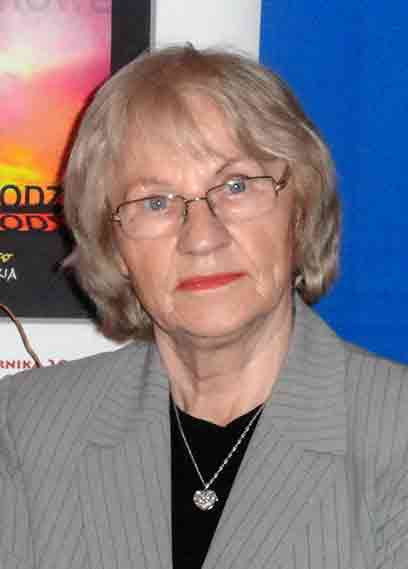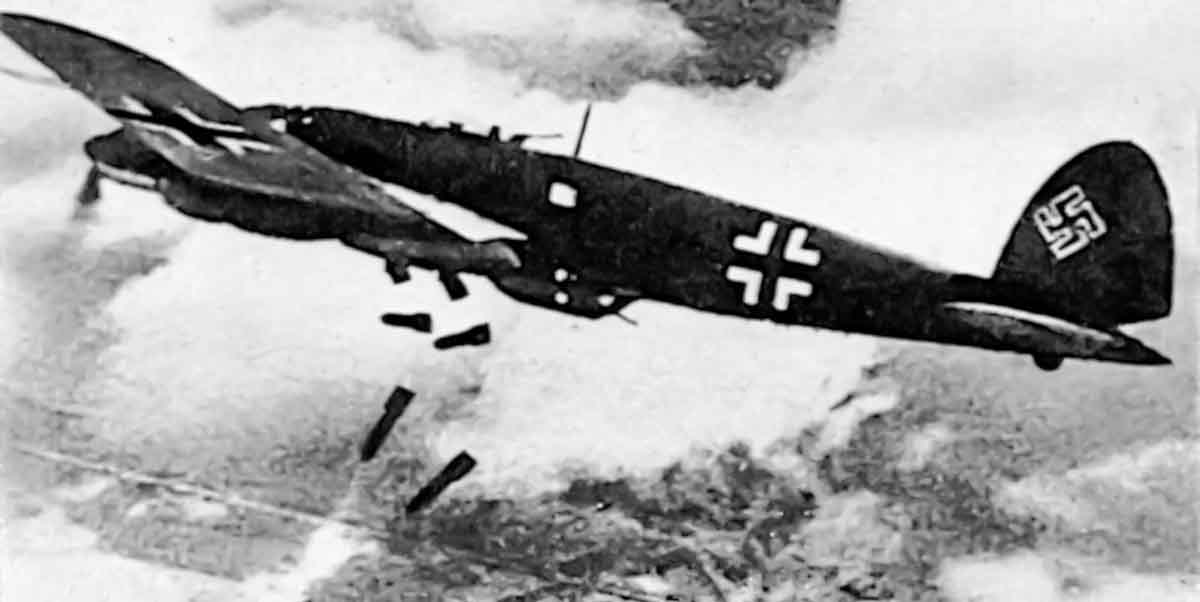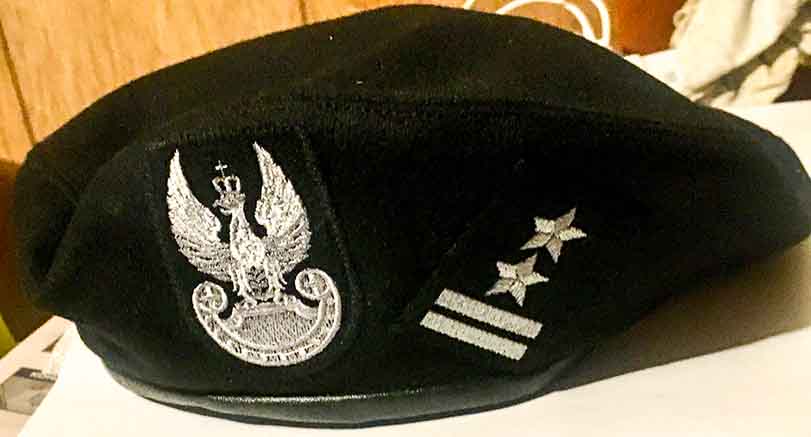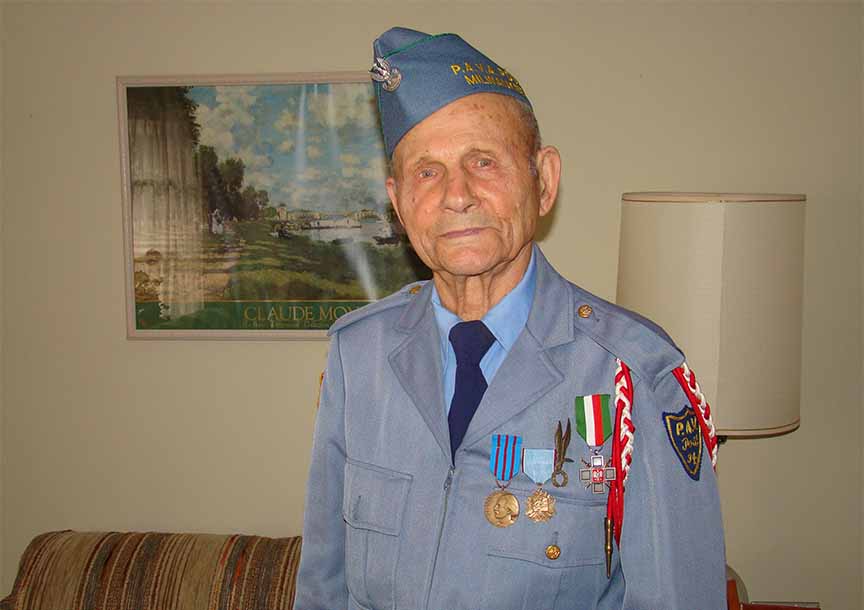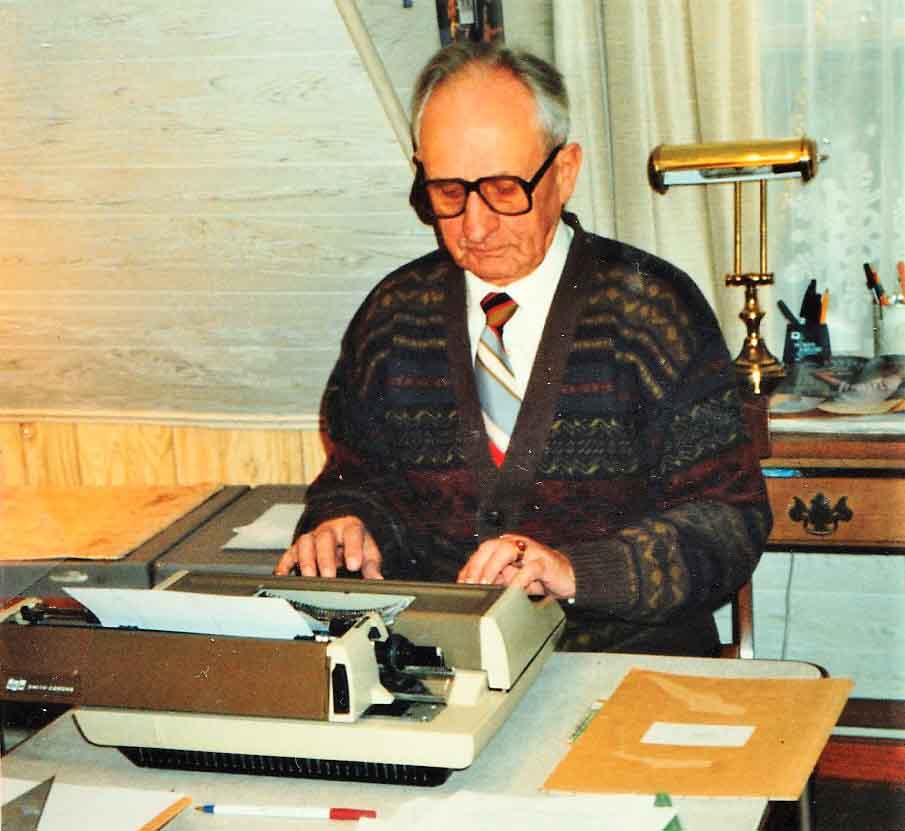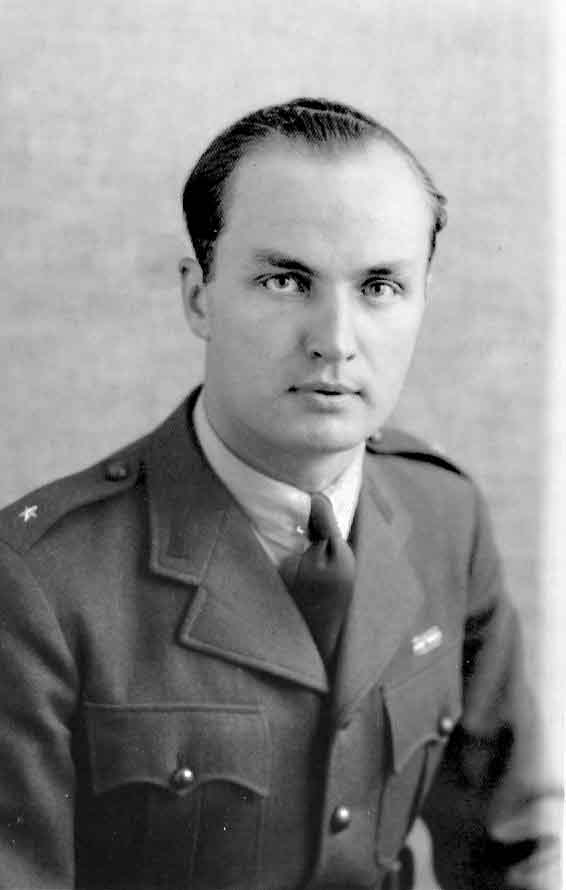That summer (1939) was important and a breakthrough for scout Leonard Jędrzejczak. He graduated from middle school and was about to start high school after the summer holidays. He performed the function of a camp guard at a scout camp near Kościerzyna. He had his first love and his first kiss. On August 6, together with a few colleagues from Bydgoszcz, he went to the Military Training Camp in Myszyniec. He was sure that they would learn the various self-defense gimmicks, that they would practice as soldier candidates, drill, and other tasks, but instead, they were assigned to the battalions of “Junak” (youngster,scout) building border fortifications. They transported cement with wheelbarrows and built shelters. The area was surrounded by vast mixed forests beyond which the state border ran. They heard the sounds of Germans practicing shooting on the other side of the border. They were, rather thought they were politically conscious, but none of them thought that this was their last carefree summer, that they would have to grow up in their lives in a moment, and then they were only seventeen.
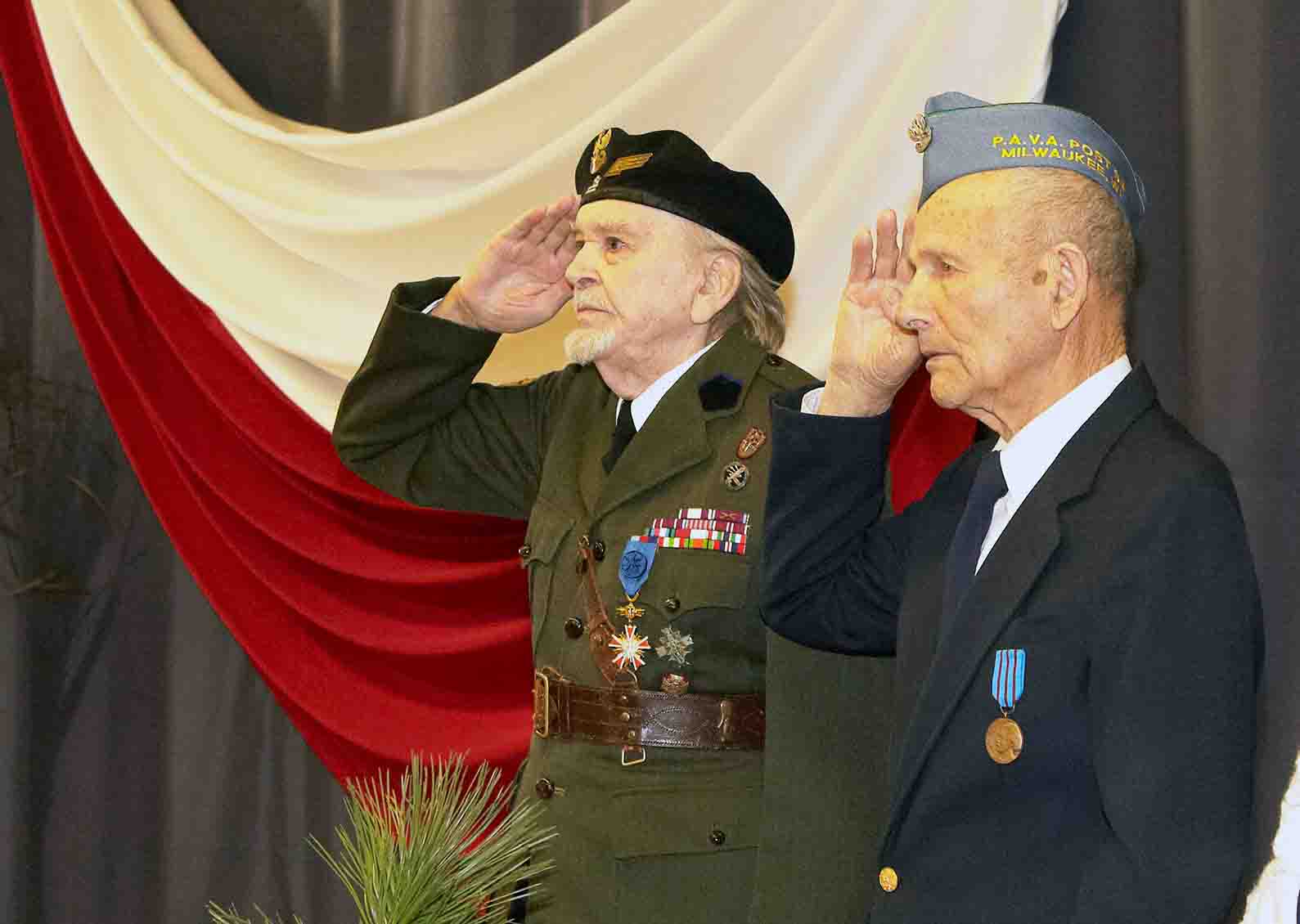
Major Leonard Jędrzejczak and Tadeusz Cisek (Photo: Marcin Murawski)
On August 30, the camp stay was ending. They put on their backpacks and set off on foot to Ostrołęka, from where they were supposed to go home by trains. At the crossroads, indicating the distances to Wojciechowice and Ostrołęka, non-commissioned officers appeared, ordered a collection in two rows and returned them to the barracks. The Junaks found out that they had been mobilized. The next day, war broke out. They were assigned to the 5th Regiment of Zasławski Lancers, which was stationed in Wojciechowice near Ostrołęka. Many of the Junaks were the sons of farmers, they knew how to use equipment and care for animals, so they were assigned to care for repair horses, that is, those harnessed to cannons or carts with ammunition and military equipment. They were to feed them, water them and clean them. Initially, until they encountered German planes, they did it solidly. Soon, however, the army began to retreat south.Junaks went with the soldiers to Małkinia. On September 5, they were somewhere between Siedlce and Łuków, repeatedly under fire from German diving planes. The road was lined with columns of the army mixed with cars and carts of the civilians fleeing from unknown where. Leny remembered the tragic images of those moments. Sometimes it looked as if the Stukas pilots were playing with civilians fleeing into the already slightly dry patches of potatoes. They chose a group or even one fugitive and chased him with series of machine guns. Polish soldiers did not often respond with an anti-aircraft salvo, and allied planes never appeared over the Polish skies. It was more and more difficult for the Junaks to maintain order among the unit and to get fodder for the horses. Horses got lost more and more often during air raids. Again and again, seeing no other option, they left them “for safekeeping” with local farmers.
On September 17, the retreating troops of the Regiment of Zasławski Lancers received news of a treacherous attack by Soviet troops on the eastern lands of the Republic of Poland. The Junaks did not realize yet what it meant, but the older soldiers were almost sure that our defeat was only a matter of days. The remnants of the regular army began to withdraw to Hungary, which was as yet uninvolved and friendly to Poland. The Junaks with the non-commissioned officer, whom they called the chief officer, reached Ustrzyki Dolne. They wanted to go through Slovakia to Hungary, but the Dukla Pass was already closed by the Germans, so the army retreated to Stryj. The march was slower and slower. Various units mingled or walked alone without command. They were constantly moving south. The terrain was increasingly undulating, and mountain ranges could be seen on the horizon. Loose, jumbled groups of soldiers held stormy meetings among themselves. The main question they were looking for was: "go south or go back north or go home." Before it got dark, they rode into the mountains. At the stop the whispers grew louder. There were various rumors that the Hungarians would dress all Polish soldiers in prison clothes and send them to build roads for two years. Some began to rebel. As the hours passed, the situation grew tense. The silence was broken by screams, sometimes shots echoing the high mountains, creating a gloomy mood. In the morning you could see that the column had shorter significantly. After a short walk along the deep ravine, they saw a long wooden bridge on high stilts, and on the other side of the bridge, a booth and a group of Hungarian soldiers. It was the Tatarska Pass. The Junaks attached themselves to the Armored Brigade of General Maczek and crossed the borders with it.They were experiencing a drama every step of the way. They survived the bombing, lost the horses they had been given on the way, and now some officers wanted to get rid of them because they did not fit the army, because they were not properly uniformed, they had no weapons, and they had no assignments. Together with other volunteers, including high-class specialists - doctors, engineers, teachers, they wandered around waiting for a slice of bread and a bowl of soup. Officers explained their behavior with military discipline or shame in front of the allies they intended to reach. They did not know then how far was the road to the "allies" and how much they separated from them.
The first place they reached after crossing the Hungarian border was a village on the edge of the Rahov valley. After a long and arduous walk, it was the first mountain village to be relatively quiet and the lights were on. There were thickets and a stream at the edge of the village. The boys threw themselves into the stream with youthful impatience. A bath in icy water not only washes dust from my face, but also restored mental clarity. With only an elbow under their head, they fell asleep for the first time in a foreign land. In the morning they waited for the regular troops to take breakfast and shyly approached the kitchen. The cook first banged on them, then ordered to hurry up and be sure to fill the canteens with water. Some senior lieutenant from mobilization interceded several times for them, but the function officer always emphasized that "they do not even have uniforms, so how to recognize them as an army"
On September 21, after breakfast, the army left Rohow and marched ahead. Probably the command knew where and how long they would march, but the boys were not privy to it. They dragged at the back of General Maczek's brigade, walking or sitting on a cannon wagon from time to time. They left themselves entirely at the grace and disfavor of the officers, believing that they would not send them back to Poland and leave them on the way. After several hours of walking, when they reached the head of the column, they saw for the first time Hungarian officers who were hanging around the command. There was a great agitation among the soldiers, which the officers tried to break by explaining the laws of the country where the army is interned. The batteries were to be delivered in a fixed order. The Junaks did not have any weapons, so they watched from quite a distance as a pile of hand and machine guns grew. Some soldiers threw the rifle in such a way as to leave themselves at least a trace of pride. Two more times the brigade stopped to hand over the motorized equipment and the rest of the various equipment. Hungarian officers wanted to spare the disarmed pain and discreetly retreated to further positions. After the act of surrender, the Junaks were no longer different from the regular army. They were given uniforms, forage caps, coats and ruffle boots intended for infantry, and they continued on their way. With breaks for short rests, they marched all night. In the morning they reached a place that Leny would remember for his whole life. The town was called Berekshaz. After breakfast, the chaplain celebrated the field mass. Older soldiers from mobilization, regulars from service and other figures who were still waiting for some sort of assignment stood in silence and clutching military hats in wet from the sweat from touching hands, thinking about one thing, and when the song chanted by the priest was heard, "God something Poland ", And especially with the words of the refrain," Lord, let us return our homeland free ", sobs that had been suppressed so far escaped from all breasts, and tears ran down the cheeks of mature, hard men. Regret for a lost country, for families, a sense of defeat, as well as the uncertainty of tomorrow, were written on every face, hidden in every furrow of fatigue. It is good that a rest was ordered and everyone falling asleep with a hard sleep could forget about everything for a moment. The next day they marched again.
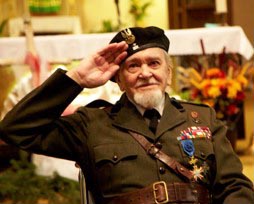
Major Leonard Jędrzejczak (Photo: Marcin Murawski)
P.S. Leonard Jędrzejczak escaped from an internment camp in Hungary. He fought in Egypt, defended Tobruk fortress, followed the combat route with General Władysław Anders, and fought at Monte Cassino and for Bologna. After the war, he moved to Milwaukee and worked as a metallurgical engineer. Today, as a retired 98-year-old Polish Major, he shared his memories with Kuryer Polski.



